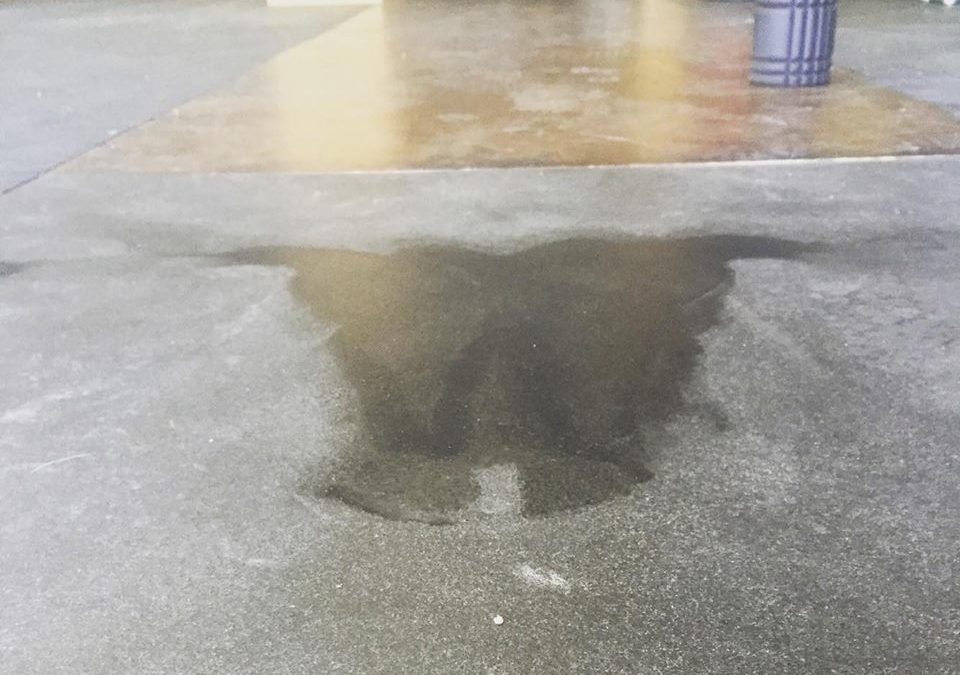I got back to Texas and it’s f**cking hot. Really hot.
#SweatAngels
Now you can debate that this heat makes you tougher and that sweat running into your eyes is fun, but the research shows increased time to fatigue over 88 degrees, and also with increased sweating it is going to be harder to replete fluids and electrolytes because ummmm you lose more.
The GI tract can only absorb about 34 oz of water per hour and people can lose a 1/2 gallon (64 oz) of water in a one hour training session. Thus, re-hydrating doesn’t end with the workout. We also know small decrements (1-3%) in water result in anything from decreased aerobic endurance and muscular performance to even physical exhaustion, coma, and death (more than a 6% loss).
Before people go in for labs I tell them to drink lots of water and still the amount of labs that come back hemoconcentrated blows my mind (dehydrated). People don’t pay me oodles of money to tell them to drink more water and eat more vegetables, but these may be the two biggest changes they need to make that will increase performance (physical and mental) and improve how they feel.
Oh you have been eating 2 to 4 servings of vegetables for the last 15 years and only drinking diet coke?
Hello decades of nutrient depletion and likely chronic dehydration.
How long to get that back? I have no idea, but please start nibbling copious amounts of Dino Kale and drinking ummm water. Thanks.
Back to exercise. When we sweat we lose sodium, chloride, calcium, magnesium, and potassium (electrolytes), and water. The first three don’t seem to be a problem to get back but potassium and magnesium – we suck at repleting.
The IOM doubled the potassium requirement to 4.7 grams per day and less than 2%of Americans meet this conservative baseline need. And as you all know from previous posts how I feel about magnesium as around ¾ of Americans are deficient and athletes needs 10-20% more, everyone I have is up around GI tolerance. Want energy and the ability to calm down and clear Norepi and Epi? Magnesium.
Where do we get potassium and magnesium? Fruits and vegetables…and supplements (I use different forms but predominantly magnesium citrate and potassium citrate with athletes because the citrate can also enter the Kreb cycle). Magnesium and potassium are also the predominant electrolytes intracellularly, so if you want to get water into the cell they are pretty damn important. Think back to the simple rule in high school chemistry – water follows electrolytes.
So what should you do?
Fundamentals!
1.Drink half your body weight in ounces per day (you want urine in the 1-3 on the chart below)and then 16-20 oz of fluid per pound you lose exercising. That’s simple. Take a pre and post workout weight and get to work. Also, don’t go water lush right after a workout – drink consistently throughout the day but not (15 to 30 min) around meals as this dilutes stomach acid.
2. Eat all the vegetables and greens powders (if they have higher doses of vitamin C keep them away from training).
3. Take your Magnesium.
4. Think about adding in some help but Gatorade sucks, not because it doesn’t work but because it’s overly expensive sugar water and has stupid shit in it. I am not putting Red 4,793 in my body no matter what the research says.
In my opinion, the physician only electrolyte solutions also have stupid shit in them – high doses of antioxidants, specifically Vitamin C.
Thus, coconut water is probably one of your better choices (it is jacked on Potassium) and it performs just as well as Powerade or Gatorade in the research setting. If you don’t want the sugars you could also buy a product like Electro pH (50 cents a serving) which is solid, but honestly doesn’t taste anywhere near as good as coconut water. You could also eat a potato (926mg of potassium), an avocado (975 mg), and 6 oz of Salmon (1,068mg). Do that anyway.
Here are the Nutrition Facts.
“Exercise and repeated musclular contractions can reduce body pH. The acid base balancing effect of electrolytes can help return the body to homeostasis quicker, but if electrolyte status stays low you will continue to feel weak in your next workout. Electrolytes are so important towards hydration that in the absence of electrolytes no significant differences in hydration were seen between beverages containing and omitting CHO.”
-Dan Garner – Bridging The Gap Between Hydration, Electrolytes, and Athletic Performance
This quote makes me blush because y’all know how I feel about low grade metabolic acidosis. Oh you don’t? Click here.
…so before you go overnight herbs from Tibet and commandeer lower EMF cell phone from Best Buy make sure you have mastered the fundamentals.
References:
- Lambert CP, Costill DL, McConell GK, Benedict MA, Lambert GP, Robergs RA, et al. Fluid replacement after dehydration: influence of beverage carbonation and carbohydrate content. Int J Sports Med. 1992 May;13(4):285-92. PubMed PMID: 1521940.
- Garner D. Bridging The Gap Between Hydration, Electrolytes, and Athletic Performance. Alan Aragon’s Research Review [Internet]. 2016.
- Galloway SD, Maughan RJ. Effects of ambient temperature on the capacity to perform prolonged cycle exercise in man. Med Sci Sports Exerc. 1997 Sep;29(9):1240-9. PubMed PMID: 9309637.
- Kraft JA, Green JM, Bishop PA, Richardson MT, Neggers YH, Leeper JD. The influence of hydration on anaerobic performance: a review. Research quarterly for exercise and sport. 2012 Jun;83(2):282-92. PubMed PMID: 22808714.
- Saat M, Singh R, Sirisinghe RG, Nawawi M. Rehydration after exercise with fresh young coconut water, carbohydrate-electrolyte beverage and plain water. Journal of physiological anthropology and applied human science. 2002 Mar;21(2):93-104. PubMed PMID: 12056182.








Recent Comments